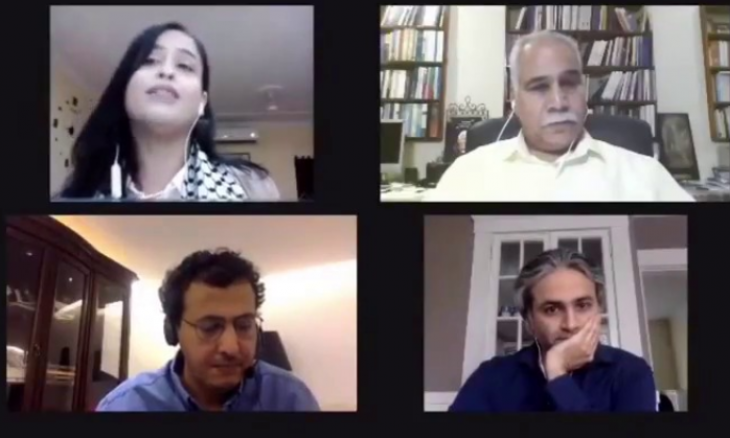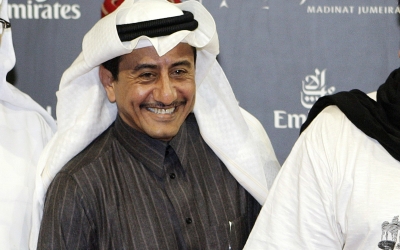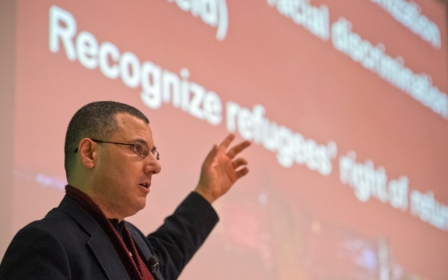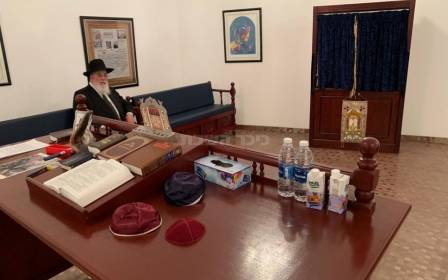Bahrain shuts down event criticising normalisation with Israel

Bahraini authorities shut down an event on the Gulf state's normalising of ties with Israel over the weekend, just minutes after it was launched online.
The Bahraini Democratic Youth Society, the event's organiser, said it had received a phone call on Saturday from the security authorities ordering them to stop live-streaming the event, "without discussions".
Hadeel Kamal Eddin, the host, had to interrupt one of the speakers, saying she had just got a phone call from “official bodies” to cancel the event.
Speakers in the event were the Saudi researcher Sultan al-Amer, Omani writer Mohammed al-Shahri, Kuwaiti academic Fahad al-Mutairi, Bahraini journalist Reza Musawi and Haitham Abdo, a member of the Popular Front for the Liberation of Palestine (PFLP).
The symposium event was planned to discuss “the dangers” of Gulf states' normalisation with Israel and was streamed live on YouTube.
New MEE newsletter: Jerusalem Dispatch
Sign up to get the latest insights and analysis on Israel-Palestine, alongside Turkey Unpacked and other MEE newsletters
Ibrahim Kamal Eddin, the president of Bahrain's chapter of the pro-Palestine Boycott, Divestment and Sanctions (BDS) movement, said that Bahraini officials “insisted to stop the symposium, saying that we do not have a permit and that foreign and non-local people are participating in it”.
He added that BDS Bahrain, the co-organiser of the symposium, previously held several meetings and events without permits on the topic of boycott and normalisation with Israel.
Bahrain has no official ties with Israel, and neither do fellow Gulf Cooperation Council countries Saudi Arabia, the United Arab Emirates, Qatar and Oman. Only two Arab countries, Jordan and Egypt, have signed peace treaties with Israel.
In June, Bahrain hosted the US-backed "Peace to Prosperity" meeting in Manama, which was focused on the economic side of US President Donald Trump's plan to address the Israel-Palestine conflict.
The event was the initiative of Trump’s son-in-law Jared Kushner, and was promoted as the first part of Washington's long-delayed broader political blueprint to revive the moribund Israeli-Palestinian peace process.
Many see the deal as already being implemented on the ground in favour of Israel through US recognition of Jerusalem as Israel's capital and Israel's annexation of the occupied Syrian Golan Heights.
The Bahraini Foreign Minister Khalid bin Ahmed al-Khalifa told the Times of Israel on the sidelines of the event that “Israel is a country in the region… and it’s there to stay, of course.”
Middle East Eye delivers independent and unrivalled coverage and analysis of the Middle East, North Africa and beyond. To learn more about republishing this content and the associated fees, please fill out this form. More about MEE can be found here.





